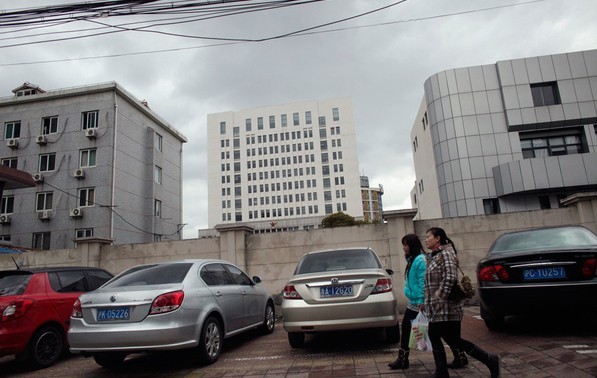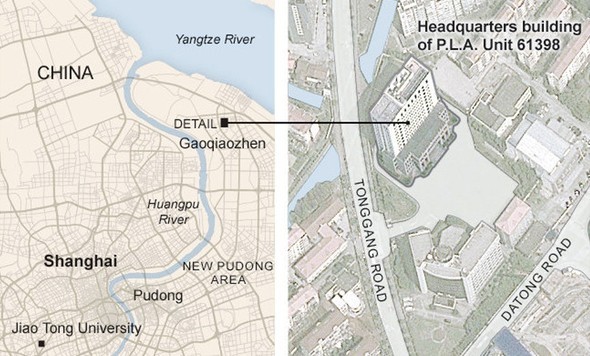HOME >>
China opposes hacking attack allegations
Source:Globaltimes.cn Published: 2013-2-21 17:09:00
| Latest News |
Regular cyber attacks from US: China
Chinese authorities Wednesday continued to denounce accusations from a US cyber security firm that the nation's military was behind a series of cyber attacks targeting US companies, and noted that China itself is a major victim for cyber attacks, most of which originate in the US.
Authorities reject cyber crime accusation
Chinese authorities have denied allegations made in a US report saying that the People's Liberation Army (PLA) has been conducting cyber espionage against Western countries for years, calling the claims groundless.
| Timeline |
||
| Time |
||
| Feb. 18 |
In a report released Monday, Mandiant pointed its fingers at a Chinese military unit named People's Liberation Army (PLA) Unit 61398, saying the Shanghai-based outfit had systematically stolen confidential data from at least 141 organizations across 20 industries. |
|
| Feb. 19 |
Foreign Ministry spokesman Hong Lei on Tuesday said allegations of Chinese hacker attacks are groundless, reiterating the government's position on fighting cybercrime. |
|
| Feb. 20 |
According to the Associated Press, the White House will lay out a report that suggests "more aggressive steps" to be taken in response to cyber thefts attributed to the Chinese government. |
Geng Yansheng, spokesman for the Ministry of National Defense said that statistics show that Chinese military end users connected to the Internet frequently come under cyber attack from abroad. In these cases, source IP addresses suggest that the majority of them come from the US. |
 |
 |
| The 12-story building alleged in a report on February 19 by the Internet security firm Mandiant to be the home of a Chinese military-led hacking group in Shanghai's northern suburb of Gaoqiao. Source: ifeng.com | |
| View Points |
Expert opinions:
Li Wei, a security expert with the China Institute of Contemporary International Relations:
Considering an increase of military expenditure for Cyber Command but the slashing of expenditure for other military services in the US, we have a reason to suspect that the US’ sensationalizing of Chinese hacker attacks is to create an opponent –or at least a potential opponent – for Congress, as only in this way can it receive financial support to expand its military budget as desired for cyber security.
Lü Ningsi, host of Phoenix TV:
It will be best if China can disclose the detailed address and names of US hackers as soon as possible. When China shows its strong anti-hacking ability, it will run the table in future. By then, the US can no longer be the only one to rule the world, but China and other powerful countries like Russia will play a role as well.
Han Xudong, a professor with the PLA National Defense University:
The US is raising the profile of the 'invisible' cyber threat as a new weapon in order to balance its losses in the Asia-Pacific pivot strategy. The US controls the world's main servers. This has been a threat to China's cyber security.
Liu Deliang, director of the Beijing-based Asia-Pacific Institute for Cyber-Law Studies:
Even if the attacking origins were in China, it could be results of individual behaviors. In the end, the accusation is nothing more than an excuse for the United States to wage wars on network security, and also for its trade protectionism, economic and foreign sanctions purposes.
Media comments:
Xinhua: Hacking allegations against China both baseless and revealing
In fact, the credibility of the United States has already been seriously questioned because of its government's habit of accusing other nations based on phoney evidence.
Wenweipo: 'Chinese hacker threat' is an extension of the 'China threat'
The Hong Kong-based newspaper Wen Wei Po sees the accusations about the “Chinese hacker threat” as an extension of the “China threat”, which not only intends to bring shame on China but also benefit Mandiant by attracting more clients to the company’s cyber security products.
As for the US government, the paper said, it exaggerates China’s threat because portraying itself as being under attack will help promote its cyber warfare plan.
| Similar Allegations |
| Time |
||
| Jan. 30, 2013 |
The New York Times and Wall Street Journal claimed that they had detected cyber attacks from China-based hackers, while China had been regularly labeled a major origin for cyber threats to the United States. |
Hong Lei, spokesman of the Ministry of Foreign Affairs, responded that "the conclusion that China participated in related cyber attacks based on unverified evidence is irresponsible," adding that China was also a victim and Chinese law strictly forbids Internet attacks. |
| Nov. 14, 2012 |
According to US commission's annual report, the commission urged tighter screening of investment by Chinese State-owned companies in the United States, and recommended that the US Congress conduct an in-depth assessment into "Chinese cyber espionage practices." |
"This commission always sticks to the Cold War mentality," Hong Lei said at a regular press briefing in reference to an annual publication released by the US-China Economic and Security Review Commission the same day. |
| June 2, 2011 |
In a blog post updated, Google said a clandestine campaign originating in China targeted some users of Gmail, its e-mail service, aiming at stealing passwords and monitoring e-mail accounts. |
Google lacked evidence to support its accusations that Chinese hackers are behind the alleged cyber attacks on hundreds of its email accounts and the timing to make such accusations is evil-intentioned, Chinese experts said. |
| Apr. 1, 2010 |
Symantec, an Internet security giant headquartered in California, said in its March report that individuals in China were responsible for 28.2 percent of e-mail attacks, which was cited as a major source of malware. |
A Chinese Foreign Ministry spokesman rejected claims that most e-mail-based malware targeting the United States originated in China. |
| Jan. 17, 2010 |
The New York Times has filed two reports claiming the cyber attacks on Google and other American firms last year have been traced to Shanghai Jiaotong University (SJTU) and Lanxiang Vocational School. |
"Investigation in the staff found no trace the attacks originated from our school," Li Zixiang, Party chief at Lanxiang Vocational School in Shandong Province, told Xinhua. |
| Cyber attacks on China |
Overseas attacks mainly come from US IPs: CNCERT
The National Computer Network Emergency Response Technical Team Coordination Center of China (CNCERT) found that in 2012, some 14.197 million mainframe computers in China had been attacked by Trojans or proxy zombie networks from foreign IPs.
Some 105.12 million mainframe computers were attacked by Trojans from US-based IP address in 2012, the No. 1 cyber-aggressive country on CNCERT's cyber crime list. Attacks from South Korea and the Germany were second and third.
| Related Reports |
Attacks originating from US rank first among overseas hackings in China: FM
China defense ministry refutes cyber attack allegations
China refutes cyber attack allegations
Chinese experts slam US hacking accusations
Beijing hits back at US hacker claims
Chinese Internet security center reveals overseas attacks
Posted in: